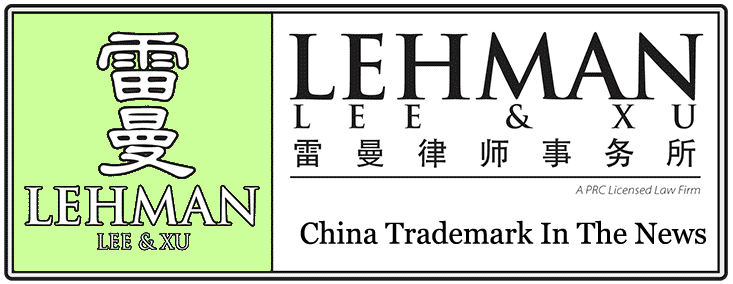
 |
|
LEHMAN, LEE & XU China Lawyer
|
|
China Trademark In The News
|
|
November 2013
|
The China Law News keeps you on top of business, economic and political events in the China. |
In the News |
Domain Name Scams Find Their Second Wind in China |
Domain name scams have existed for years, with many originating in China, but this year the proverbial “fuel to the fire” came in the form of ICANN launching a multitude of new domain extensions and preparing to launch 700 more within the next 24 months. A domain extension is simply the information “on the other side of the dot” (.com, .uk, .cn). This only adds to the confusion of sifting through possible Domain Name Scams because anyone can send you an email saying that someone in the world is preparing to register your domain with one or more of these 100s of extensions. In light of this, Lehman, Lee & Xu has prepared a comprehensive guide to provide you with all the information you need to identify a Domain Name Scam and save both the stress and money of falling victim to this rapidly growing con. In addition to reading this guide please use any of the attached resources to confirm the legitimacy of both email addresses and websites and compare any emails you receive with the scam emails enclosed herein. Types of Domain Name Scam Emails There are three main types of Domain Name Scams to watch out for. The first type involves an organization (holding a very official title) contacting you with the urgent news that they have discovered another organization (with a very obscure title) looking to register domain names that are very similar to your own. The domain names referred to almost always include your domain name with a countless possibility of attached endings (.hk, .cn, .tw, etc.). They say, if you don’t act quickly, this obscurely named entity will, within only a few days, register the domains and damage your brand equity. The second type of domain name scam consists of a pleasant email reminder prompting you to renew a domain name that looks similar to your own but is actually slightly altered. And finally, the third nature of this scam comes in the form of a reminder asking you to restore your domain name. However, the reminder comes from a registrar different from that with which you originally applied for the domain. In terms of prevalent domain name scams coming from China, the first type of scam is the most common and almost viral with regards to how many individuals have and are receiving it. There are email templates you may refer to in order to match an email you receive with the style and tone of those identified as being scams. Additionally, you may check a list of actual scam emails submitted online by wary netizens who identified the scam. Key Terms Used Organizations that may Contact you:
Popular Language in Scam Emails
If You Respond to the Scam |
|
|
|
|